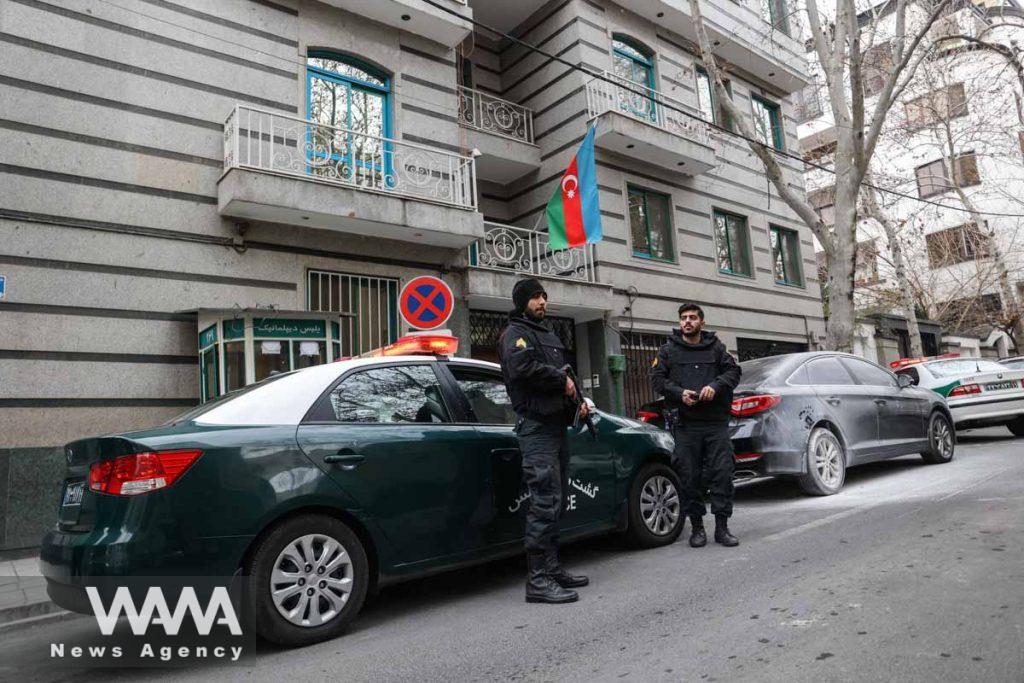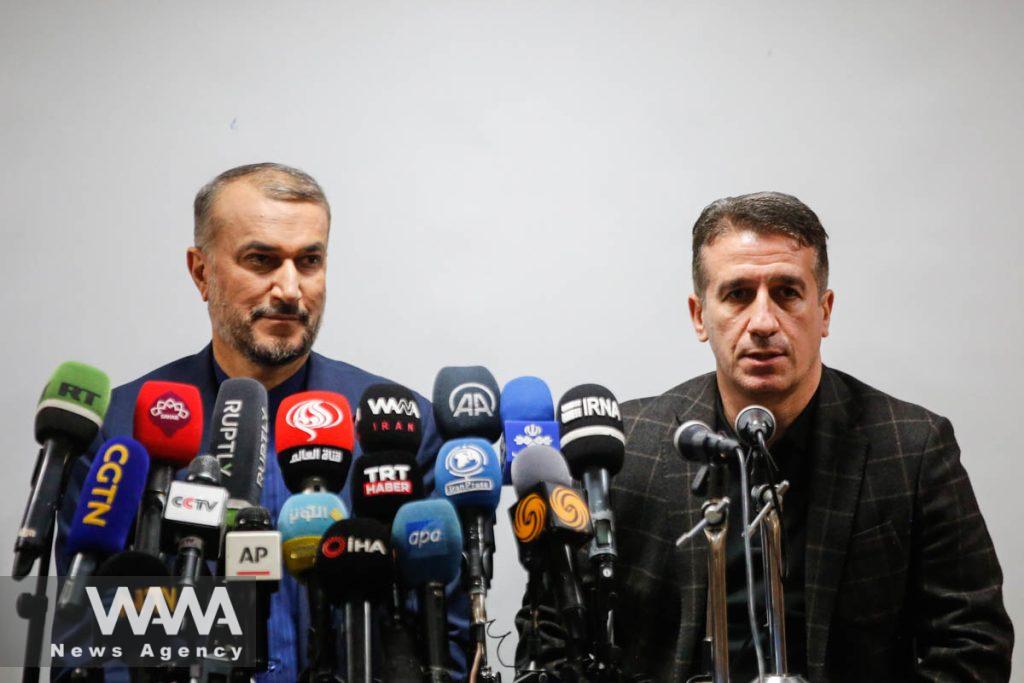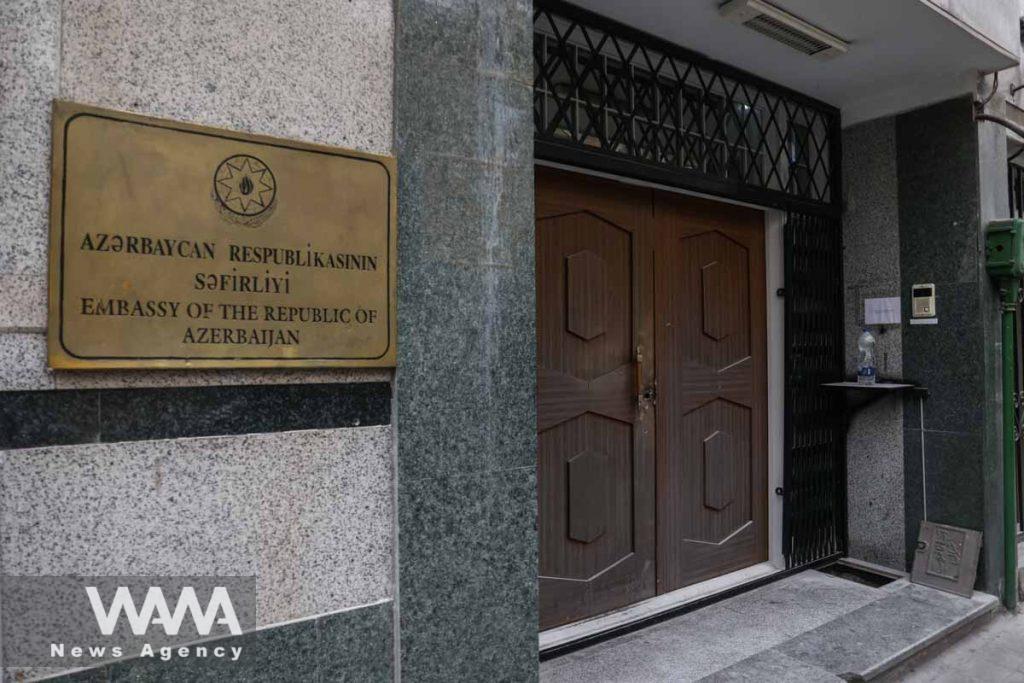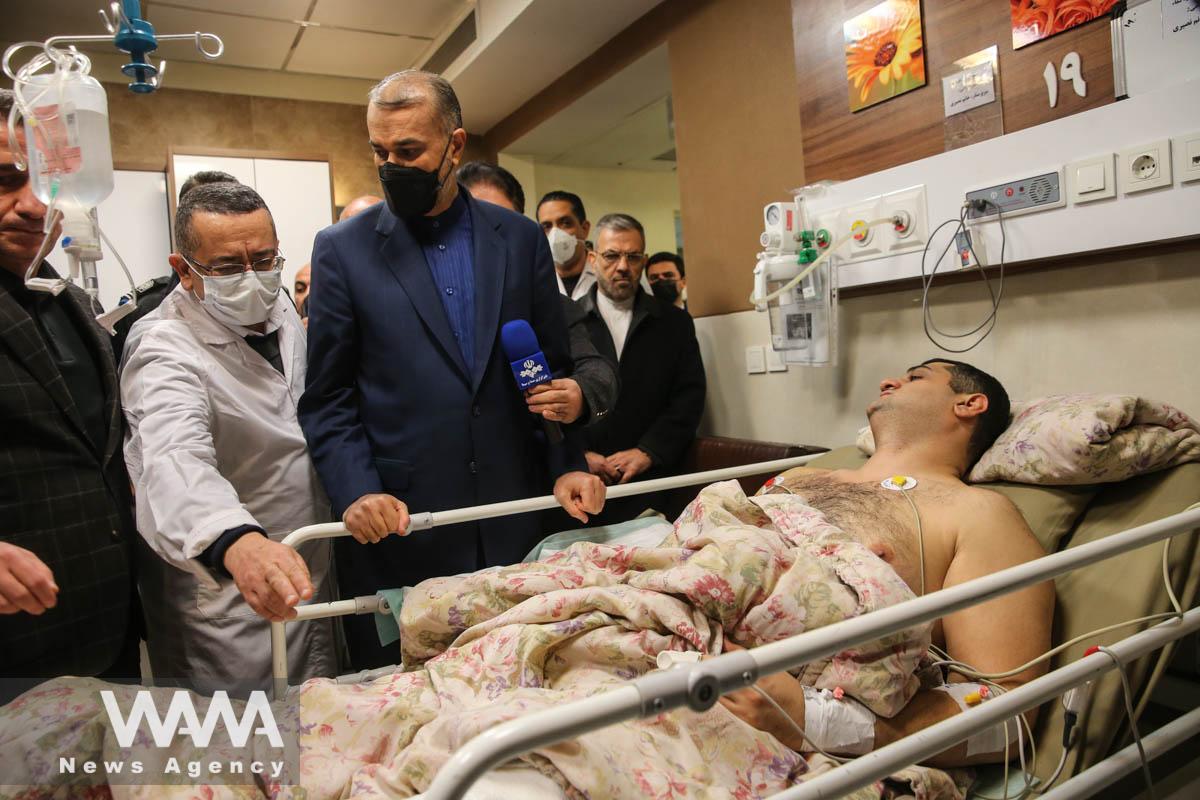Iran-Azerbaijan relations, where do they stand?
WANA (July 6) – Ever since its independence around 20 years ago, Azerbaijan has had a somewhat strained relationship with its bordering neighbor, Iran. Their ties have further soured during the past year.
The attack on Azerbaijan’s embassy in Tehran in late January was one of the main factors of this soured relationship. On a Friday morning, an armed man entered the embassy premises and opened fire at the staff, killing its head of security and wounding others.
After the incident, the police chief of Tehran said the assailant was immediately arrested, adding that the investigation pointed to “personal and family-related problems” as the attack’s motive.
Later the prosecutor in charge of the shooting said the armed assailant had claimed his wife, an Azerbaijani citizen, went to the Azerbaijani embassy in April last year and had not returned. He believed she was inside the embassy.

A general view of the Embassy of the Republic of Azerbaijan after an attack in Tehran, Iran, January 27, 2023. Majid Asgaripour/WANA (West Asia News Agency)
Iran’s foreign minister Hossein Amir Abdollahian called his Azerbaijani counterpart Jeyhun Bayramov shortly after the episode and said diplomatic relations should remain unaffected between the two countries.
Nevertheless, Azerbaijani President Ilham Aliyev blamed Tehran for the incident, calling it a “terrorist attack”:
“This is serious; this is terror. And we think that this terror is organized on a governmental level.”
Following the attack, President Aliyev ordered the closing of the Azerbaijani Embassy in Tehran. Later, four Iranian diplomats were expelled, prompting Tehran to respond with a similar move. Iran repeatedly warned Baku against any emotional decisions that might have long-term consequences for bilateral ties.
At the same time, Azerbaijan had been boosting its ties with the Israeli regime. Earlier this year, Israeli President Isaac Herzog traveled to Azerbaijan. After a meeting with Aliyev, Herzog said the two had spoken in depth about regional security, claiming it was “endangered and threatened by Iran.” Tehran slammed Baku for its partnership with the occupying regime toward establishing a united front against the Islamic Republic.

Iran’s Foreign Minister Hossein Amir-Abdollahian and Ambassador of Azerbaijan to Iran Ali Alizada attend a joint news conference in Tajrish hospital in Tehran, Iran, January 27, 2023. WANA (West Asia News Agency)
Iran’s Foreign Ministry warned that this new approach could constitute a national security threat for Iran that cannot be ignored. Tensions increased between the two, with both sides flexing their military muscles in exercises near their shared borders meant as warnings. Estimates also show that Azerbaijan has become Israel’s largest oil supplier, while Tel Aviv is now responsible for around 70 percent of Baku’s weapons.
However, Tehran keeps signaling patience and peace towards Azerbaijan, trying its best to smooth out any differences and issues with its close neighbor, with which it shares many cultural similarities. Pointing to the “unbreakable” historical and religious bonds between the people of Iran and Azerbaijan, Tehran has stressed that it has always tried to foil the plots of those wanting to create division between the neighboring countries.
For instance, after Azerbaijan’s Foreign Ministry warned its citizens against traveling to Iran last month, the foreign ministry spokesman tweeted that Iran still sticks to the policy of good neighborliness within the framework of mutual respect. “Our policy is still visa waiver and open arms to our Azeri brothers and sisters,” he stated.
Now the Iranian Iranian Foreign Minister Hossein Amir-Abdollahian is in Baku as the head of a delegation attending the Ministerial Meeting of the Coordinating Bureau of the Non-Aligned Movement (NAM). He has met with Aliyev on the sidelines, discussing mutual relations and leading regional and international issues as well as the North-South Transport Corridor.

The Embassy of the Republic of Azerbaijan sign is seen after an attack on it in Tehran, Iran, January 27, 2023. Majid Asgaripour/WANA (West Asia News Agency)
Amir Abdollahian told reporters, “We consider the security of the Republic of Azerbaijan to be the security of the region and our security. I spoke with President Aliyev regarding the incident at the Tehran Embassy, which alarmed and upset us”.
Iran has shown its willingness to repair its ties with Baku, insisting on addressing the elimination of their standing differences. However, Israel’s growing footprint in Azerbaijan is a red line for Iran. With diplomatic dialogues increasing between the two neighbors, there is hope that their ties will be mended in the near future. If Azerbaijan shows any will to strengthen ties, Tehran has said its doors are open.
WANA writer / F. Fazaeli / July 6, 2023












